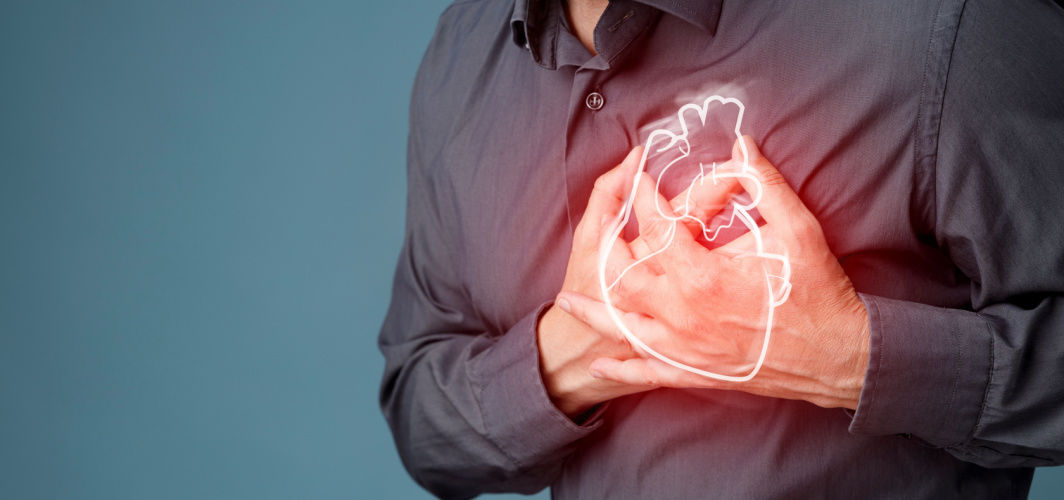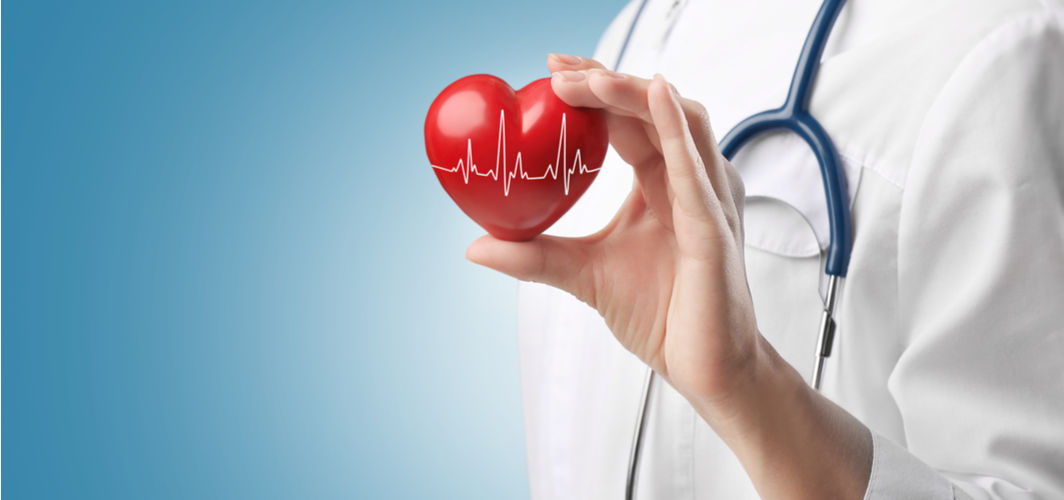Heart Conditions
Hypertension and Its Health Impact: Complications to Watch For
8 min read
By Apollo 24|7,Reviewed by Dr. Divya Chandrasekharan, Verified by Dr. Srividya Kalavagunta, Published on - 13 August 2024
Share this article
0
0 like
.jpg?tr=q-80)
Hypertension, or high blood pressure, is characterized by persistent high blood pressure exerted on the arterial walls, severely straining the cardiovascular system. Despite its widespread prevalence, many remain unaware of its potential dangers and long-term complications.
The article delves into the intricacies of hypertension, exploring how it develops, its risk factors, and the critical health complications that can arise if left unmanaged. By understanding the impact of hypertension, one can take proactive steps to maintain health and prevent the severe consequences associated with this condition. Join us as we uncover the essential information you need to watch for and manage hypertension effectively.
Understanding Blood Pressure Readings
First, maintaining good hypertensive health requires understanding your blood pressure reading. Your reading has two numbers: the diastolic, which measures the pressure between heartbeats, and the systolic, which measures the pressure during a heartbeat. Blood pressure should not exceed 120/80 mmHg; a reading of 130/80 or greater is considered hypertension.
Why is it Important to Take Your Prescription Medicines?
Individuals with hypertension must take their medicine as directed by their physician. Regrettably, a lot of people forget to take their prescriptions regularly, which may result in a higher chance of issues.
Risks of Untreated High Blood Pressure
Because it typically exhibits no symptoms, high blood pressure, also known as hypertension, is sometimes referred to as a "silent killer." On the other hand, severe health issues might arise from untreated hypertension.
It may put undue stress on your heart and arteries, raising your chance of having a heart attack or stroke. Moreover, it may harm your kidneys and cause renal failure. Uncontrolled hypertension can also damage your eyes and result in vision loss.
Major Effects of High Blood Pressure on Arteries
Damaged and Narrowed Arteries
When blood pressure remains consistently high, it exerts excessive pressure on the delicate lining of your arteries. This can cause:
- Damage to the inner lining
- Inflammation and plaque buildup within the artery walls
- Narrowed arteries restrict blood flow. This narrowing is known as arteriosclerosis (Hardening of the arteries) or atherosclerosis (Clogged arteries).
Symptoms of narrowed arteries include chest pain, shortness of breath, numbness or weakness of hands or legs, pain in arms, legs, or stomach, and fatigue. Physical activity often exacerbates these as the heart pumps blood through constricted spaces harder.
Aneurysm
An aneurysm is a bulge or ballooning in the wall of a blood artery. These fragile areas are stressed by unchecked high blood pressure, which increases their susceptibility to growth and eventual rupture. Internal bleeding from this rupture poses a severe risk to life, and this risk rises as the aneurysm grows. Your kidneys, brain, and other smaller arteries are particularly vulnerable to this harm, which could have disastrous consequences.
Aneurysm is often asymptomatic until a rupture occurs.
Symptoms of an aneurysm rupture in the brain could include sudden, severe headaches, neck stiffness, and loss of consciousness. Symptoms of an aneurysm rupture in the stomach could consist of sudden and severe pain in the abdomen, throbbing feeling in the gut, and difficulty breathing.
Damage to the Heart
Coronary Artery Disease
This condition causes the arteries that provide blood to the heart to constrict or become blocked. Plaque, or fatty deposits, build up inside the arteries, resulting in decreased blood flow to the heart muscle. Possible symptoms include dyspnea, chest pain, and extreme fatigue, especially during physical activity. Under certain conditions, it may cause a heart attack.
Heart Failure
Uncontrolled hypertension can lead to heart failure, a condition when the heart is unable to pump enough blood to satisfy the body's needs. This could happen when the heart needs to work harder to maintain high blood pressure over time. The heart muscle ages and loses some of its functionality over time. Uncontrolled hypertension can lead to heart failure, a potentially fatal condition. However, many heart failure patients can lead active, fulfilling lives with the proper care.
Dyspnea, a persistent cough or wheezing fit, ankle and leg oedema, an irregular or fast heartbeat, nausea, anorexia, difficulty concentrating, memory issues, and fatigue are some of the symptoms.
Enlarged Left Heart
Blood circulation depends on the left ventricle, the heart's primary pumping chamber. Left ventricular hypertrophy (LVH) is a silent disorder that can develop in this chamber due to uncontrolled hypertension.
The heart muscle is constantly under stress from pumping against excessive blood pressure, which leads to the development of LVH. Due to this bulkier muscle, the heart may become stiff, which will inhibit the heart's natural ability to relax and fill with blood. The heart's ability to pump blood effectively consequently declines. Possible symptoms include fatigue, chest pain, ankle and leg oedema, palpitations, irregular heartbeat, breathlessness, and lightheadedness or vertigo.
Damage to the Brain
A condition known as Transient Ischemic Attack (TIA), or mini-stroke, can result from uncontrolled hypertension. It results from a transient blockage in the blood arteries that provide oxygen-rich blood to the brain. Symptoms are similar to those of a stroke but are temporary and include sudden numbness or weakness, especially on one side of your face, arm, or leg, confusion, trouble speaking, blurred or double vision, sudden dizziness, loss of balance or coordination, and severe headache.
The symptoms typically last for a few minutes and then disappear completely. It serves as a crucial warning sign that you are at an increased risk of suffering a full-blown stroke in the future.
Stroke
High blood pressure is a major risk factor for stroke. Here's how it can cause a stroke:
- Burst Blood Vessels: Constant high pressure can cause weak blood vessels in the brain to burst, leading to bleeding that can damage brain tissue and be life-threatening.
- Blocked Blood Flow: Plaque buildup can narrow blood vessels, reducing blood flow to the brain. This deprives brain cells of the oxygen and nutrients they need.
Symptoms include sudden dizziness or loss of balance, numbness or weakness in the face, arm, or leg, especially on one side, confusion or trouble speaking, difficulty seeing in one or both eyes and severe headache. If you notice these symptoms, seek medical help immediately.
Mild Cognitive Impairment
Uncontrolled hypertension can harm the brain's tiny blood arteries, reducing oxygen and blood flow. This condition may result in thinking, language, and memory issues. Common symptoms include trouble recalling recent events, picking up new knowledge, focusing and concentrating, coming up with the proper phrases, and organizing and planning work.
Damage to Kidneys
Kidney Failure:
High blood pressure damages blood vessels, narrowing or blocking arteries and affecting kidney function. Subsequently, the kidney's ability to filter waste products and toxins is compromised. Uncontrolled hypertension increases urine production, leading to electrolyte loss and dehydration and further affecting the kidneys. Excessive blood pressure can cause irreversible kidney damage or chronic renal illness over time. The symptoms include leg, ankle, or foot swelling, weariness, nausea, vomiting, dizziness, frequent or difficult urination, and reduced urine flow.
Damage to Eyes
Retinopathy:
Excessive blood pressure weakens, leaks, or even blocks the retina, the tiny blood veins in the rear of the eye. This causes damage and swelling by interfering with your eye's blood flow and oxygen supply. Early stages of the condition may not exhibit any symptoms at all. Still, later on, symptoms like double vision, blurriness, difficulties seeing in low light, vision loss, areas that don't seem to see correctly, or even total vision loss may arise.
Choroidopathy: This disorder develops when high blood pressure damages the choroid, the layer of tissue behind the retina that houses blood vessels. This lowers blood flow and oxygen to the retina. Blurred vision, eye pain, visual distortions (where straight lines appear curved), and sensitivity to light.
Uncontrolled hypertension can damage the fragile blood vessels that supply the optic nerve, which is in charge of sending visual information from your eyes to your brain, leading to optic neuropathy. The high pressure causes the nerve to constrict or become blocked, which prevents the supply of oxygen and nutrients. Symptoms can include decreased colour vision, impaired vision, pain in one or both eyes when moving, and even blindness.
Hypertensive Emergency: A hypertensive emergency is a potentially fatal condition that needs to be treated right away. An emergency related to hypertension arises when blood pressure suddenly increases, putting vital organs like the heart, kidneys, or brain at risk. Symptoms include severe headaches, impaired vision, breathing problems, chest pain, disorientation, numbness or weakness, convulsions, and a sense of impending doom. It would be best to get medical assistance as soon as these symptoms manifest.
The Death and Morbidity Rate Linked to Hypertension
Damage to blood vessels caused by high blood pressure can result in serious health issues such as heart attacks, strokes, and kidney failure.
High blood pressure is one of the most critical risk factors for adult cardiovascular diseases and progressive renal failure. In India, 24% of fatalities from cardiovascular disease and 57% of deaths from stroke are related to hypertension. Changing one's way of life and using medicine to lower blood pressure can significantly reduce these risks.
Conclusion
Hypertension is a severe medical condition that can have disastrous consequences if left untreated. Treatment compliance and routine monitoring are essential. To control your blood pressure and avoid issues, you must adhere to the prescribed drug regimen.
It is best to avoid experiencing severe headaches, blurred vision, chest discomfort, dizziness, difficulty breathing, and numbness or weakness in any body region, as these symptoms may be signs of more severe issues. Controlling and avoiding high blood pressure requires wise lifestyle choices, such as eating a balanced diet and exercising regularly. Regular checks are essential.
Platforms such as Apollo 24|7 offer comprehensive services for managing or diagnosing hypertension, including laboratory testing and consultations with specialists such as cardiologists and nephrologists. Those trying to understand their symptoms or manage their blood pressure will find these tools extremely beneficial.
Patients can avoid the major risks associated with uncontrolled hypertension by utilising these programmes to receive customised, timely therapy.
Services
Heart Conditions
Consult Top Cardiologists
View AllLeave Comment
Services
Recommended for you

Heart Conditions
These Lifestyle Changes Can Save You From A Heart Attack
An unhealthy diet and a sedentary lifestyle are major risk factors for heart disease and heart attacks. Read on to know what can help you reduce the risk of a heart attack.

Heart Conditions
Is Your Chest Feeling Tight And Heavy? These Could Be The Reasons
Tightness or heaviness in your chest can be a result of several issues such as injury, infection, anxiety, lung conditions, digestive issues and cardiovascular conditions. Such symptoms should be reported to the doctor immediately.

Heart Conditions
Explained: Heart Attack, Cardiac Arrest, and Heart Failure
Lack of timely treatment resulting from the lack of awareness is the major cause of heart condition-related deaths.
Subscribe
Sign up for our free Health Library Daily Newsletter
Get doctor-approved health tips, news, and more.
Visual Stories

Can Processed Meat Increase the Risk of Chronic Diseases?
Tap to continue exploring
Recommended for you

Heart Conditions
These Lifestyle Changes Can Save You From A Heart Attack
An unhealthy diet and a sedentary lifestyle are major risk factors for heart disease and heart attacks. Read on to know what can help you reduce the risk of a heart attack.

Heart Conditions
Is Your Chest Feeling Tight And Heavy? These Could Be The Reasons
Tightness or heaviness in your chest can be a result of several issues such as injury, infection, anxiety, lung conditions, digestive issues and cardiovascular conditions. Such symptoms should be reported to the doctor immediately.

Heart Conditions
Explained: Heart Attack, Cardiac Arrest, and Heart Failure
Lack of timely treatment resulting from the lack of awareness is the major cause of heart condition-related deaths.

